'Don't Just Criticise, Create!': Interview with Andreas Lombard - Member of the Executive Board of the Thomas Hoof Group
This is the eleventh instalment of our new interview series entitled "Don't just criticise, create! David Engels talks to European artists, philosophers, priests, intellectuals, activists and craftsmen who have decided not only to lament the "decline of the West", but also to try to help reverse it. They did so by creating something new - and perhaps also something beautiful, true and good.
David Engels: Dear Mr Lombard, most readers undoubtedly still know you as the editor-in-chief of the magazine "Cato - Magazin für neue Sachlichkeit" (Cato - Magazine for New Objectivity), which you helped to achieve a real cult status in the German media landscape between 2017 and 2021. Looking back, how do you assess the success of that initiative, which was discredited as "right-wing" by the other German media from the very beginning, but which has had considerable success despite headwinds - until today?
Andreas Lombard: Thank you very much for your kind words. Apart from a few criticisms from notorious reconstructors of "right-wing" networks and the also easily bearable disinvitation from a restaurant close to the Chancellor's Office, the headwind has remained within limits. What seems more remarkable to me is that “Cato”, apart from the first issue, simply did not exist for the established media. It was not discussed, but it was not attacked either. Your question is now obviously aimed at asking if the water glass was half-full or half-empty. The number of subscribers remained comparatively high - the strong position of “Junge Freiheit” with its large distribution list and the grateful commitment of Dieter Stein, who is, after all, the publisher, ensured that. However, the stable level did not change much in the course of my service. I have experienced readers who were very happy to hold the magazine in their hands until they found out how it was viewed by the mainstream and promptly distanced themselves.
The possibilities of distribution were limited, at least in my time, but this was probably not only due to the political situation, but perhaps also to the sometimes quite high level of the texts and questions. In terms of content and aesthetics, my aim was to produce a magazine that was similar to the legendary FAZ gravure supplement "Bilder und Zeiten" (Pictures and Times), but in four colours - also conservative, but above all free of the unbearable zeitgeist nonsense. Actually, you only have to leave it out to stand out immediately. We also had enough authors who had once written for the FAZ or other renowned organs. Above all, I wanted to include two subject areas that are usually neglected: geopolitical developments and questions of practical life, i.e. energy, family, food, agriculture, crafts. In the first case, I was able to draw on some international contacts, which was appreciated by the readers, also in terms of the quality of our translations. In the second case, I could only provide samples, because it is much easier to find people who write about cultural or political topics than about the question of how to stop the decline of crafts and peasantry. This is not just about conscious shopping, but also about structural-political opposition. In any case, the importance of geopolitical, structural-political and practical life issues can hardly be overestimated from my point of view.
And how do you see the future of conservative media in the European and German media landscape increasingly shaped by remotely controlled algorithms, cancel culture, fact checkers, observation by state surveillance organs and hostility of left-wing activists not limited to the virtual realm?
Given the freedom with which I was allowed to make Cato, I would also ignore the phenomena you cite the second time. The more fanatical and the dumber the mainstream becomes, the better the market opportunities for alternative products. There are, after all, a steadily growing number of them at national and European level. Perhaps in future we will have to concentrate on print, because the temperature continues to rise and with it the pressure on people who spread dissenting opinions. The screws are being tightened every week. Compared to the Internet, print has long had the status that samizdat publishers had in the communist Eastern Block. The worse the Internet censorship, the greater the advantages of print on paper.
As noted in the introduction however, it is not "Cato" that should be the focus of our conversation, but rather your new job. Last year, you were appointed to the management of the Thomas Hoof Group. This is a small group of companies that since its founding has been committed to countering the throwaway culture of today with exclusively high-quality, responsibly produced and domestically manufactured products. Can you briefly outline the history and philosophy of the company for our readers?
Both in home technology (switches and lights) and in food, it is simply about honest products that are what they promise. This may sound banal, but it is a very demanding approach in view of the extent of counterfeiting by globalised turbo-modernity, which is almost impossible for a layman to comprehend. In a do-it-yourself store you notice quite quickly that in the field of electrical engineering, for example, you are almost only offered junk, but already in the supermarket you usually lack the comparison - unless you were old enough to still remember good food. If you have never experienced the Catholic mass in the old rite, you don't know what was taken away from you by the liturgical reform of the 1960s. It is the same everywhere. What is real butter and how do we get it from where it still exists to the customer? The same questions arise for meat, potatoes, vegetables, bread, jams, oils, flours, writing utensils, frying pans, textile cables, wicker baskets, good books, restful places, and so on and so forth.
But let's stay with food: The food is supposed to be flavoured by the landscape or the season it comes from or belongs to - in other words, it once had flavour and other characteristics that were gradually driven out of it by industry and commerce - while the most insane efforts were made in the field of breeding, refinement, saccharification, standardisation, preservation and packaging. If you like, it is a struggle against the gnostic aberrations of the commodity world. On the remaining side paths and byways, we are looking for the original that is as unadulterated as possible, and its quality in any case does not depend on whether it is "organic". If it meets our standards, it often is by the way. Old breeds of domestic animals kept on pasture without turbo-fattening - that can be a sufficient criterion for good and healthy meat. It's a similar story with the switch and lighting systems, which are manufactured in-house without the use of petrochemical plastics. They are functional, durable, attractive and have not travelled halfway around the world before being finally assembled at the customer's, who can usually take them apart, understand their function and repair them himself. Of course, we also want to contribute to the preservation of the few production sites for hard goods that still exist in Germany and Europe.
As we know, the private sector is also increasingly suffering from the threat of external forces; be it the fierce competition from China, or the regulatory frenzy of national and European institutions, whose complex and often nonsensical rules can often only be met by the big players, while the small ones are increasingly overwhelmed - even in the area of sustainable production methods, which are after all at the centre of the "Green Deal", or organic farming, whose specifications, together with the much-coveted "Bio" label, can hardly be met by smaller operators. Is this also a challenge for the Thomas Hoof Group, which is also active in the field of high-quality and organically responsibly grown food?
Absolutely. The challenge of the 21st century is to drastically reduce the insane consumption of fossil fuels - officially in favour of completely arbitrary "climate targets", in reality because the extraction of the remaining resources is becoming increasingly expensive and thus uneconomical. For the time being, the Western world is postponing the problem into the future by means of gigantic debt. Economically, we have been living in a house of cards for a long time, which miraculously has only wobbled so far, but whose collapse is inevitable. The bitter pill that, at least in part, a retranslation of fossil-energy forces into human or traditionally energetic labour (manual labour, draught animals, water mills, etc.) is imminent and that we would do well to remember the "eternal" world of life before 1850, naturally does not trigger any enthusiasm. People do realise that more and more is being imposed on them both "top down" and "bottom up" and that the air they breathe is being taken away, but they do not necessarily realise that this is intentional. There is a global war of "the top" against "the bottom", which leads to family farms having to give up. So have small craftsmen, organic shops, bakers, butchers and restaurants, with the result that sooner or later we are threatened with African conditions in questions of supply.
What has been planned and implemented since the 1990s under the keyword "bioeconomy" and under this umbrella as "climate policy" is supposed to nourish the illusion that the standard of living in the fossil age can be maintained post-fossil. However, this does not work, which can already be seen today in the fact that this strategy harbours many unresolved conflicts of objectives, as can also be read in Wikipedia. The globally available biomass cannot be increased and distributed at will, regardless of whether it is ultimately used for materials or energy. The bio-economic version of "sustainability" is not about resource conservation, but about the total utilisation and commercialisation of all living things, right down to our organs and genetic material - to the advantage of a few and ever larger global players and to the detriment of any self-sufficiency, independence or crisis-proof self-sufficiency. And to the detriment of health, as we have known since Corona, but as can also be seen in the replacement of free natural reproduction by artificial reproduction worth billions. The energetically insane production of biofuels at the expense of food production contains the problem in a nutshell. Organic agriculture, of all things, is being regulated away in favour of "sustainable" agriculture, in which everything is carted halfway around the world and famine is risked in the course of a slightest systemic irritation. Seed-stable seeds will eventually be taken away from private gardeners, too, if everyone is to be able to buy everything at any time and anywhere.
This is where the “Thomas Hoof Group” comes in with the use and strengthening of conventional, self-sufficient and regional structures. The simple question of how mankind has survived for millions of years without steam engines, electricity, Otto motors, antibiotics, pacemakers and the internet already contains the answer. I don't want to praise the Amish way of life as the solution to all problems, but with a certain scepticism about progress I can much more easily appreciate that the coming changes will not only bring disadvantages.
High-quality products for the home and office; organically responsibly grown food; publishing house; our own holiday resort - what will happen tomorrow with the ever more complex Thomas Hoof Group?
We don't see it as particularly complex at all, because Thomas Hoof has stringently derived the various lines of business and placed them in a common context. In addition, the establishment of the "Hoofsche Stiftung Bodenständigkeit" is imminent. On this basis, not only will the future of the group of companies be secured independently of the family, but also possibility will be created of giving validity beyond the group to the principles according to which we do business ourselves: long-term horizons, patient, non-speculative capital, corporate industry connections and long-term, trusting, honest and cooperative relationships with suppliers, employees and customers. The foundation aims to promote this economic orientation in its associated companies, but also by scientific and journalistic means, as well as in model projects.
Ultimately, as already mentioned, it is about the creation and strengthening of subsistence structures: the foundation's mission is to reduce the systemic fragility of industrial societies and to develop anti-fragile subsistence structures by means of projects, research projects and other undertakings. This concerns the relocalisation of markets, radical shortening of supply chains, which today run around the globe even for food and pharmaceuticals, promotion of "low-tech", closing of agricultural material cycles (regenerative agriculture, market gardens) and increase of regional food sovereignty.
Without being a specialist in this field, it seems to me that Thomas Hoof is a real pioneer in the field of high-quality and sustainable production. Is this example now being copied or are there already possible mergers with other suppliers to form a more extensive network?
There are many contacts, but networking is still in its infancy, especially since the supposedly green-left government policy has its own camp firmly in its grip - and thus also projects that are in principle close to us. The ideological penetration of all economic sectors with climate, gender, migration and other "justice" issues is also taking place "top down", controlled by actors who obviously do not have Germany's and Europe's best interests at heart. This weakens and divides the market, even if well-liked market participants or subsidy recipients who obediently go along with every new turn will feel the effects later than the outlaws who have been suffering for a long time from the fear of contact with potential suppliers, employees and customers. But there are enough reasons to be optimistic. The worse it gets, the more likely it is that there will be a simple not-with-us on a broad basis as well.
The motto of our interview series is: "Don't criticise, create." In which field should young people today most likely invest their creative energy to serve the survival of our badly battered Western civilisation?
No matter what they do - in view of the current situation, they should seek side paths and concentrate on creating self-sufficient structures and networks. This applies to almost all areas of life, i.e. everyday care, education, culture and religion; since Corona, as we know, also to trustworthy medical care. It is difficult to judge whether the greater dangers come from the overregulation and strangulation of self-sufficient, non-globalised economic activities in the name of the bioeconomy (A) or from a systemic implosion with a far-reaching collapse of supply (B). The consequences of B will, of course, be worse the further A has progressed. Either way, survival issues are likely to be on the table soon. Therefore, I would advise apprenticeships where one learns something useful, be it in the field, gardening, handicrafts, construction, agriculture or in the field of food production. Many of today's problems are artificial, if we consider that they simply did not exist before the turbo-industrialisation and -globalisation in the second half of the 20th century, at least not on today's scale. However, many preconditions, such as the multi-generational family with its "economy of the incidental" (Thomas Hoof), have also been lost and cannot be spontaneously reconstructed. Apart from that, it is the wisdom of classical education, uncorrupted by the spirit of the age, that can equip us for the coming storms. And, of course, the timelessly practical experiential knowledge that is richly documented.
Read also
The Essence of Things - Hesperialism
In the fifth episode of "The Essence of Things", we discuss the topic of philosophy of history and the concept of hesperialism.
David Engels
Deliberatio.eu: Prof. David Engels & Propst Dr. Gerald Goesche
Propst Dr. Gerald Goesche leitet das Institut St. Philipp Neri in Berlin, eine kleine, traditionell katholische Gemeinde mitten im Herzen der weitgehend atheistischen und linksliberalen Bundeshauptstadt. David Engels sprach mit ihm für "Deliberatio" über seine Mission, das Leben in Berlin, die lateinische Messe, die Zukunft des Christentums und das Streben nach dem Wahren, Schönen und Guten.
David Engels
'Don't just criticise, create!': Interview with Francesco Giubilei, founder and director of “Nazione Futura”
This is the ninth instalment of our new interview series, called “Don’t just criticise, create!” David Engels speaks with European artists, philosophers, priests, intellectuals, activists, and artisans who have each decided not only to lament 'the decline of the West' but also to endeavour to help reverse it.
David Engels
Tolkien's Birthday
No doubt: whoever reads Tolkien’s work with at least an ounce of sympathy for the traditions and for the history that made the greatness of the West cannot escape deep fascination, as Tolkien has managed to shape a “subcreation” that is the mythopoetical quintessence of everything that the defines our civilisation – for the best as for the worst. Indeed, Tolkien’s oeuvre is much more than just a medley, a pastiche of diverse narrative strands; it is a unique recasting that convincingly makes all later traditions look and even feel like much later variations of the true, “original” stories as contained in his own legendarium.



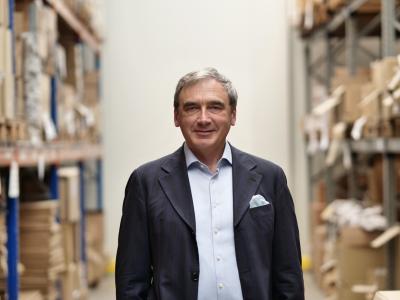

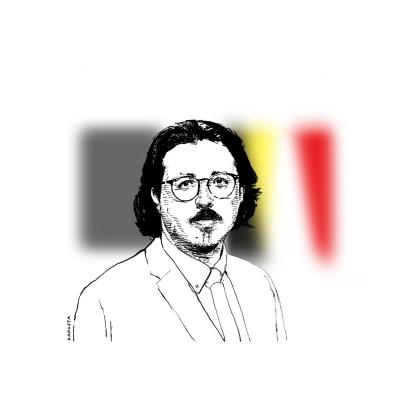
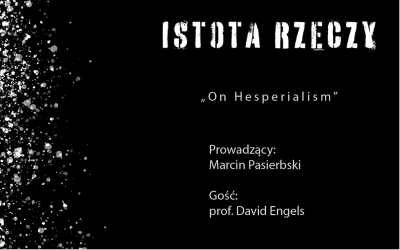

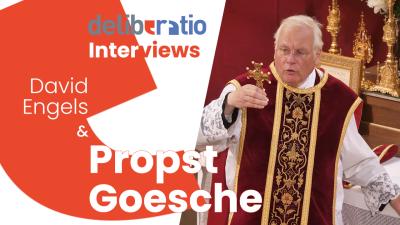



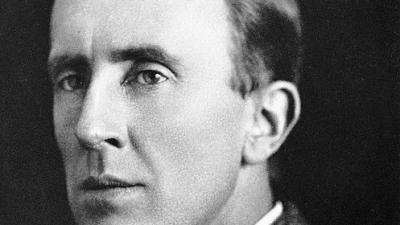

Comments (0)